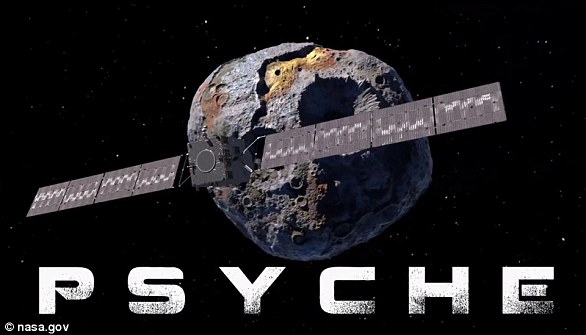The Importance of Space Exploration

NASA’s Psyche mission is set to launch in 2023.
January 25, 2017
The United States has been at the pinnacle of space exploration since the Cold War, launching numerous missions to explore the vast unknown space that surrounds the Earth. As we move towards the future, humans must look towards space as the next domain. Earth’s population has grown exponentially, and as a result, the most habitable land on Earth has been settled. In the near future, we will need to look for somewhere else to expand to, and the only way is up. Colonizing other planets will provide another outlet for human life and will be a safe haven for humans in case of a large-scale disaster on Earth. Additionally, space holds large amounts of resources that are much needed here on Earth. According to experts in the field, the materials and energy available in the solar system alone could support thousands to billions times more people than are currently living on Earth. Experts in fields that deal with space and space exploration have continually voiced their support for outer space colonization. Stephen Hawking stated in 2006 that humans needed to inhabit space within the next 200 years, or risk long term extinction. A year earlier, NASA administrator Michael Griffin reiterated that the ultimate goal of the space missions was to colonize space. “The goal isn’t just scientific exploration,” he said. “It’s also about extending the range of human habitat out from Earth into the solar system as we go forward in time … If we humans want to survive for hundreds of thousands or millions of years, we must ultimately populate other planets.”
Space exploration provides humans with more opportunities to learn about the mystery surrounding us. We are continually trying to move towards learning about the universe and understanding how everything works, and as we learn about other bodies in the solar system, we also learn more about the Earth. NASA’s programs have pushed the greatest limit known to man and have helped expand our knowledge about the universe and what it holds. These include some of the most iconic moments in United States history such as the first man on the moon. On Jan. 4, NASA announced two new missions that are set to launch in the early 2020s. Lucy, launching in 2021, aims to explore six of Jupiter’s Trojan asteroids and Psyche, launching in 2023, will do an in depth analysis of a metal asteroid. These new missions will help give us a better understanding of the formation of the solar system and the possibility of resource collection in space.
Space exploration is vital to further our understanding of everything around us and holds great possibilities for the future on Earth. It provides humans with the ability to colonize other bodies within the solar system or even beyond due to the never-ending rise of the human population. Allowing for more space exploration is vital and the needed funds should be provided to organization such as NASA so that it can be continued.









